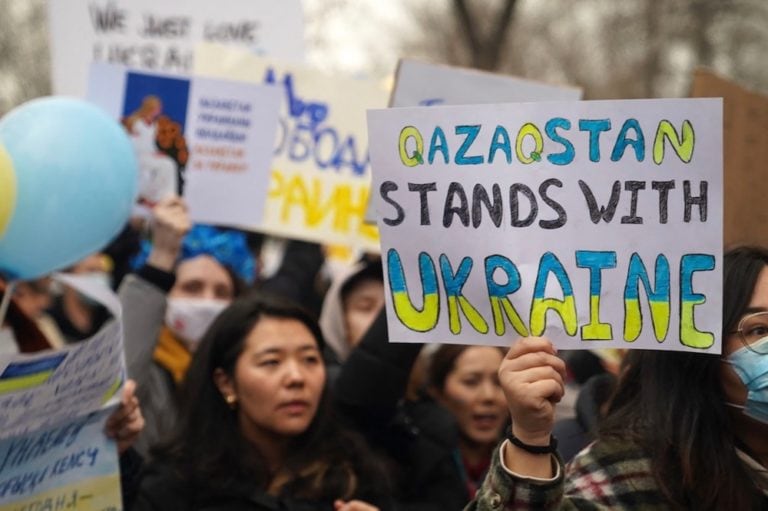RFE/RL’s Uzbek service, Radio Ozodlik, has this year published a series of high-profile investigations into the Uzbek government, and particularly into President Shavkat Mirziyoyev and his family’s wealth.
This statement was originally published on cpj.org on 21 October 2021.
Authorities in Uzbekistan should swiftly investigate threats received by employees of the U.S. Congress-funded broadcaster Radio Free Europe/Radio Liberty, and ensure that they can work safely, the Committee to Protect Journalists said today.On October 16, anonymous users of the Telegram messaging app sent dozens of death threats to staff members of RFE/RL’s Uzbek service, Radio Ozodlik, according to reports by Radio Ozodlik and RFE/RL.
Over the course of about 30 minutes, staffers received messages threatening beheadings and sexual assault, accompanied with pornographic collages featuring images of the outlet’s employees.
Many of the images appeared to have been created by the same person or group, as they featured an identical caption stating, “Ozodlik’s real goal is to raise a rebellion, to disrupt peace, to discredit our president,” the outlet wrote.
Uzbekistan’s presidential elections are scheduled for October 24. This year, Ozodlik has published a series of high-profile investigations into the Uzbek government, and particularly into President Shavkat Mirziyoyev and his family’s wealth.
“The unprecedented and repugnant threats made to employees of RFE/RL’s Uzbek service demand a clear response from Uzbek authorities,” said Gulnoza Said, CPJ’s Europe and Central Asia Program coordinator, in New York. “No journalist should have to work in the face of such threats, and the Uzbek government should take immediate steps to investigate these threats’ origins and hold those responsible to account.”
In its report, Radio Ozodlik wrote that coordinated online attacks were a “regular occurrence” when it published critical articles and videos about senior government officials and the president and his family. Commentors have previously accused the outlet of spreading false information, slandering Mirziyoyev and fomenting disorder, it stated. However, the number of death threats received on October 16 was unprecedented, the outlet reported.
Radio Ozodlik Telegram specialist Andrei Soshnikov told the outlet that while the accounts posting the threats could belong to real individuals, they were more likely to be part of an organized spam network.
Radio Ozodlik’s entire staff has been based in the Czech Republic capital of Prague since 2005, when it was forced to close its Tashkent bureau after reporting on a massacre by Uzbek security forces in May that year, according to its website.
President Mirziyoyev has unblocked news websites including BBC Uzbek, Voice of America, and Deutsche Welle during his tenure, but RFE/RL’s Uzbek service has remained blocked in the country, and its requests for accreditation have gone unanswered, the outlet wrote.
In a statement passed to CPJ by Radio Ozodlik, RFE/RL President Jamie Fly described the threats as “despicable” and called on the Uzbek government to condemn them, stop blocking Radio Ozodlik’s website, and accredit the outlet’s journalists.
CPJ emailed the Interior Ministry and office of the presidency for comment, but did not receive any replies.



